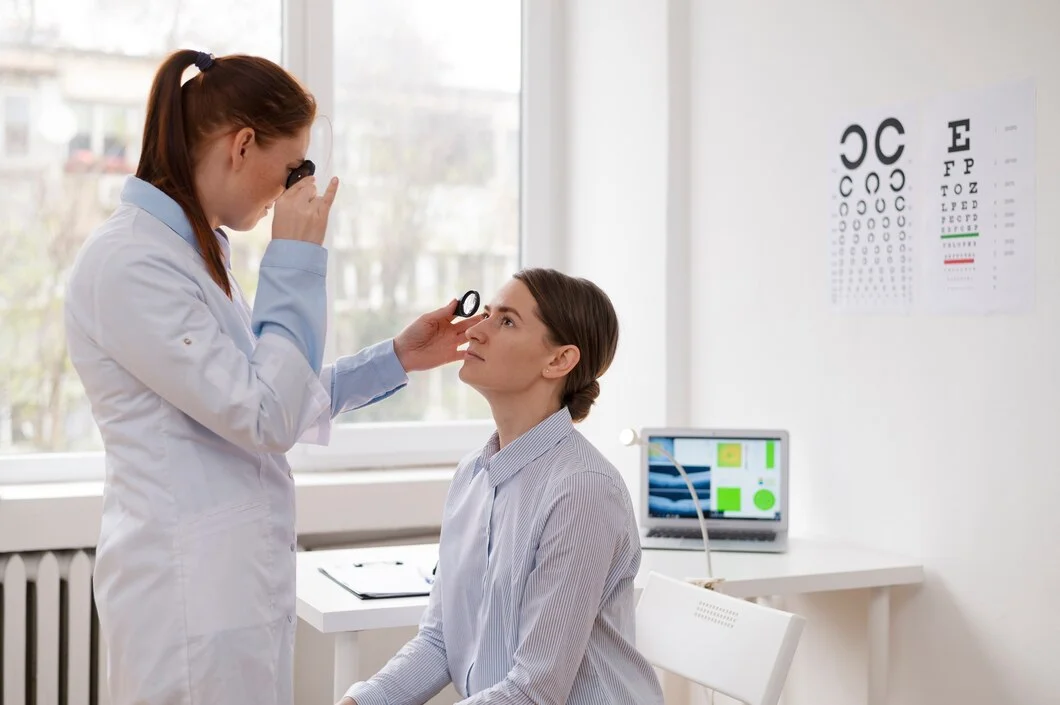Looking for healthcare that puts you first? Connect with us to learn more
Witness the future of healthcare, Today.
Diabetes is a condition that affects the body’s ability to produce or use insulin effectively, which is necessary for regulating blood sugar (glucose) levels. High blood sugar level can lead to damage in multiple areas of the body, including the heart, kidneys, and blood vessels. The small blood vessels in the eyes are particularly sensitive to this damage.
As a result, even well-managed diabetes can still impact your eye health, leading to eye problems caused by diabetes. These issues can include diabetic retinopathy, cataracts, and glaucoma, which may worsen if blood sugar levels are not properly controlled. At Elite Eye Care, we provide expert eye care services to help you manage and prevent diabetic eye conditions, safeguarding your vision for a lifetime.
The Centers for Disease Control and Prevention (CDC) states that about 90% of vision loss due to diabetes can be prevented with early detection and treatment. Early detection is crucial for people living with diabetes, and they should undergo annual eye exams, even before experiencing signs of vision loss. However, studies show that 60% of diabetics are neglecting the eye exams advised by their doctors.

Need assistance? Contact our team to learn more
We are your roadmap to healthcare success.
What Are the Common Eye Problems Caused by Diabetes?
High blood sugar levels can silently harm your vision. Over time, they can damage the delicate blood vessels and lenses in your eyes, leading to serious diabetic eye disease that may affect your vision and even cause blindness.
Some common diabetic eye conditions include:
Diabetic Retinopathy: Diabetic retinopathy disease is a serious eye condition caused by high blood sugar. It can damage the tiny blood vessels in your retina (the light-sensitive tissue at the back of your eye). If left untreated, it can lead to serious problems such as vision loss and retinal detachment.
Diabetic Macular Edema ( DME ): Macular edema occurs when fluid builds up in the retina, leading to swelling and blurry vision. Diabetes can contribute to the development of macular edema, and if left untreated, it may result in permanent vision loss.
Cataract: Cataracts occur when the clear lens in front of your eyes becomes cloudy. People with diabetes are more likely to develop cataracts at a younger age and at a faster rate than those without diabetes. High blood sugar levels can speed up this process, making your vision blurry.
Glaucoma: Glaucoma refers to a set of conditions that cause damage to the optic nerve in the eyes, leading to irreparable vision loss. People with diabetes are at an increased risk of developing glaucoma.

Who Has a Higher Risk of Diabetes and Eye Problems?
Having diabetes increases your risk of eye problems, particularly if you've had it for a long time. The risk is even higher if:
- Having diabetes for a long time.
- Difficulty controlling blood sugar levels.
- High cholesterol levels.
- Family history of eye disease.
- Smoking Tobacco.
- Pregnancy.
Still curious? Schedule a consultation to get personalized answers!
Your vision, our priority.

Conclusion
Protect your vision by managing diabetes, getting regular eye exams, and maintaining good control of your blood sugar. Follow a balanced diet and exercise regularly. Early detection is crucial for preventing serious diabetic eye disease. Let Elite Eye Care be your partner in protecting your vision.
Your Health Matters, Act Now
See the world in a whole new light.
Q&A
1. What types of diabetes affects the eyes?
Type 1, type 2, and gestational diabetes can all lead to eye problems.
2. What is retinopathy of the eye?
Diabetic retinopathy is a complication of diabetes that damages the blood vessels in the retina, potentially leading to vision loss.
